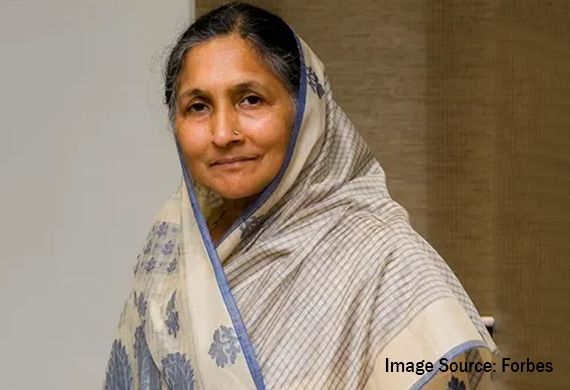
When will we Bridge the Eco-Gender Gap?
By: Rachita Sharma | Saturday, 7 May 2022
Last week several parts of India were struck by a daunting adversary, the heat wave. With the mercury soaring much above 40 degree Celsius in different parts of the country, we were all left sweating and looking for some respite. Such extreme weather phenomenon have been occurring at increasing frequency, making us wonder if human kind has actually caused irreparable damage to the environment.
Research bodies have been warning us for several years with increased evidence yet, we have collectively failed in taking concrete steps to help offset the damage caused.
However, there is a growing trend among individuals to adapt to a more conscious way of living. Termed as sustainable living, it can be described as a lifestyle choice that intends to decrease the usage of earth’s resources by individuals and society as a whole. Sustainable living aims to offset the negative environmental impact caused by humankind by making more conscious lifestyle choices. The intension is to decrease the ‘carbon footprint’ of each individual.
With individuals adopting the sustainable living lifestyle, there has also been an increase in companies creating sustainable products. Till a few years ago, the only choice for conscious consumers was to switch from plastic bags to cloth bags. But today the scenario has hugely evolved. Be it clean natural makeup, skincare, household items, food or even hygiene products, there exists a more environmentally friendly product in each category.
Upon taking a closer look at popular sustainable lifestyle friendly products, once will notice that most are geared or aimed towards the female consumer.
The truth is that supermarket shelves are filled with ‘green’ alternatives for women’s products. But the same can’t be said for men’s products. This phenomenon was first officially termed as the ‘eco gender gap’ by market research firm Mintel. The eco gender gap is caused because female consumers are disproportionately responsible when it comes to making ‘green’ or sustainable choices.
Women are also the more powerful consumers when it comes to making choices for the household, as observed by the report created by Mintel in 2018. In the report, senior consumer lifestyles analyst, Jack Duckett said that women are the one’s tasked with running the household which includes actions such as cleaning, washing, laundry, and recycling. With brands focusing more on catering towards the female consumers for all sustainability related campaigns, they give the impression that making greener choices is a prerogative for women and not men. Such stereotyping of gender roles is played a key role is creating this eco-gender gap.
A survey by Ogilvy Earth said that a majority of American adults believe that taking sustainable initiatives is a feminine attribute. This warped perception of gender’s association with green habits also holds men back in indulging in activities that can be considered sustainable. Be it, using reusable water bottles, driving electric vehicles or something as simple as carrying a cloth shopping bag, men actively shy away from such activities.
While it may sound absurd, yet we have come to cognitively associate ‘green activities’ with femininity.
But it’s about time that this perception be changed. Men and women are equally at risk when it comes to the negative environmental impact created by human activity. We are all in this together and taking substantial action towards offsetting the damage done to the environment is everyone’s equal responsibility.
For starters brands need to change the tone of their messaging. Green initiatives are not just for women, they are for everyone. One must also understand that at the crux, a sustainable lifestyle is not only about taking everyday actions that are ‘green’. It goes deeper into an individual’s relationship with their community and the environment as a whole. Once we understand the larger context making a shift towards a sustainable lifestyle becomes easier, irrespective of one’s gender.






